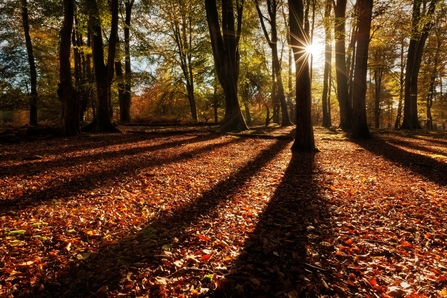- Part 3 of the Planning & Infrastructure Bill would pose a major threat to wildlife
- New poll: Voters say Labour Government is failing nature
The controversial Planning & Infrastructure Bill is currently going through Parliament – but Part 3 of the Bill has attracted widespread criticism for the damaging impact it would have on nature.
The legislation would threaten the UK’s most cherished wildlife and put the most protected and valuable sites – such as the New Forest and Hampshire’s iconic chalk streams – directly in the firing line as part of the UK Government’s drive to fast track development and growth.
Debbie Tann MBE, Chief Executive of Hampshire & Isle of Wight Wildlife Trust, said: “Labour promised to protect and restore nature, but the deeply flawed Planning Bill would break that manifesto pledge and betray millions of voters. It would be the biggest – and most damaging – change to environmental protections in a generation.
“Part 3 of the Bill has been falsely sold as a way of streamlining both development and nature recovery, but in reality it will just lead to yet more confusion and delays for developers, with our fragile wildlife again having to pay the price. We’ve been told this is a win-win but, in fact, it is a lose-lose.
“Let’s not forget that only 8% of England is currently protected for nature and less than half of that is in good condition. To achieve genuine nature recovery (which includes protecting 30% of land and sea for nature by 2030) from such a low base is a major challenge. This is why our current robust laws, to ensure our most precious sites are off the table when it comes to development, are so important.”
Under the new proposals, current requirements to avoid harm can be circumvented by developers by paying into a so-called nature restoration fund instead. And any commitments to restore and improve nature impacted by new builds will not be guaranteed to benefit the communities who lost their local natural spaces as habitat compensation could take place miles away, even in another county. The legislation would significantly weaken vital Habitat Regulations – overriding rules which have for decades protected our most fragile, at-risk, and irreplaceable wildlife and wild spaces.
The Office for Environmental Protection recently declared that the Bill would cause environmental regression. To date, Hampshire & Isle of Wight Wildlife Trust, together with The Wildlife Trusts and other NGOs, have called for a series of amendments to tone down the most damaging aspects of the Bill, while also suggesting positive measures to improve it such as adding safeguards for irreplaceable habitats like chalk streams. However, the Government has rejected these and so now The Wildlife Trusts have joined forces with the RSPB to call for Part 3 of the Bill to be scrapped.
Debbie Tann added: “The false claims that nature is a blocker to economic growth, made repeatedly by the Chancellor, are based on a failure to understand how nature underpins our economy, and boosts people’s health. This contempt for nature is evident in wider Treasury decisions, including threats to cut support for nature-friendly farming and money raised from water company fines to restore polluted rivers instead earmarked for general Treasury funds. This constant short-termism where nature’s needs are disregarded in the rush to boost growth at any cost, just means that everybody loses in the long run.
“The government must now listen to the experts – including their own watchdog who labelled the Bill ‘environmentally regressive’ – and row back from rushing into making the biggest change to environmental laws for a generation. Wildlife and nature is not a blocker – it is central to everything we hold dear, and we must defend it. Part 3 of this Bill would have devastating consequences for our already depleted natural world and it simply cannot be allowed to happen. The only decision is to scrap it.”
As part of the fight against the proposals, Wildlife Trusts across the UK are joining forces with the RSPB to call for people to stand up for nature – by emailing their local MP and the Chancellor to fight against the legislation here: Broken Promises
This comes as a new poll, published on Thursday 22 May 2025, shows that the public think the Government is failing nature. Conducted by Savanta and commissioned by The Wildlife Trusts, it finds:
- Less than a third of adult voters believe the Government is taking the nature crisis seriously enough (26%), is listening to local people in planning decisions (24%) and is achieving success in expanding nature-rich habitats (24%).
- Less than a third (32%) also felt the Government had kept its promise to improve access to nature, promote biodiversity and protect our landscapes and wildlife.
- Just a quarter of respondents (25%) said they would support new building developments in their local area if these new developments harmed the local environment.
Read Debbie Tann’s blog: There’s no growth on a dead planet. Why Part 3 of the Planning and Infrastructure Bill is a big problem for wildlife here.

